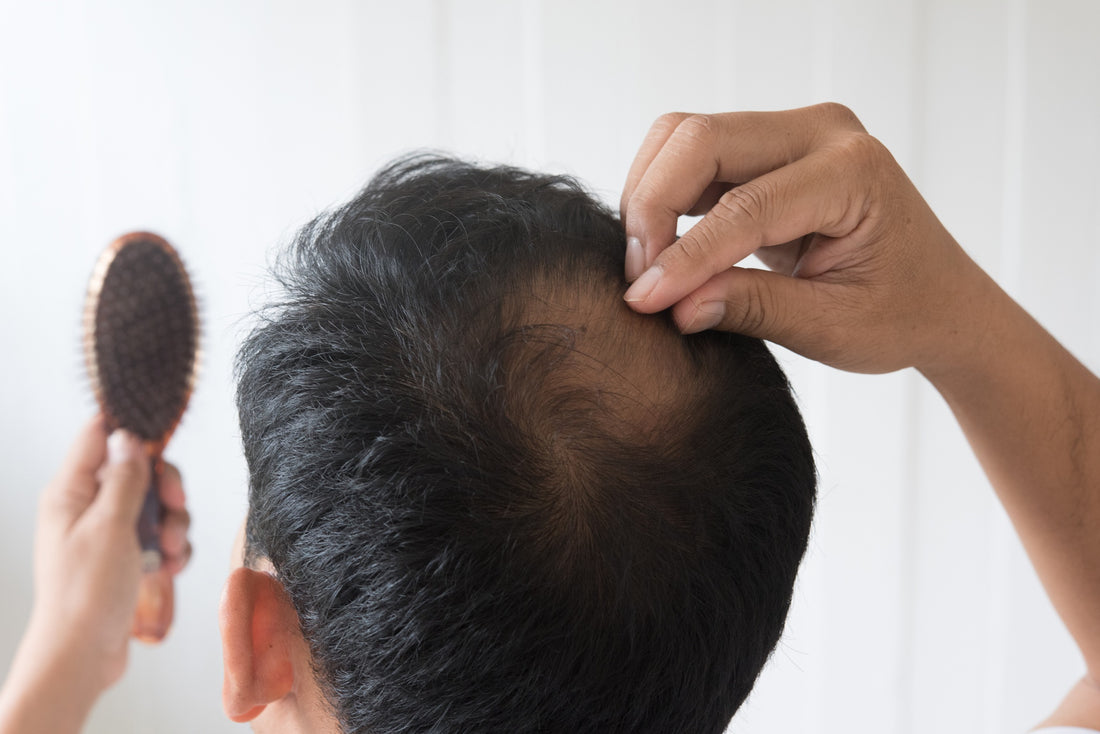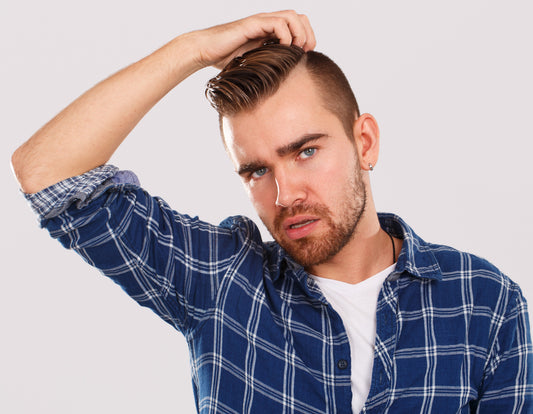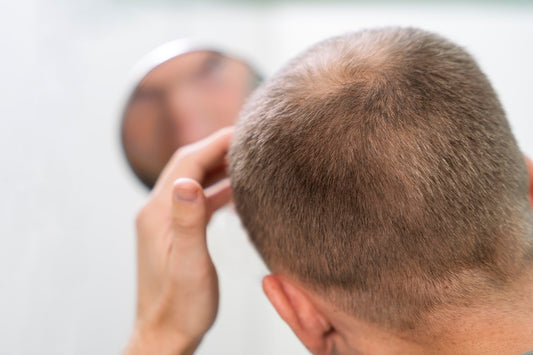Hair loss is a common concern for many individuals worldwide, impacting both men and women. It is not just a physical issue but an emotional one, too, as it can significantly influence self-esteem and confidence.
In this in-depth guide, we'll explore the connection between hair loss and confidence, how to combat hair loss, and ultimately, how reversing hair loss can boost self-esteem.
Understanding Hair Loss
Hair loss is a common concern for many individuals worldwide. It is not just a physical issue but an emotional one, too, as it can significantly influence self-esteem and confidence.
A. Causes of Hair Loss
There are several reasons for hair loss, and identifying the underlying cause is pivotal in addressing the issue correctly.

Some common causes of hair loss include:
- Genetics – Pattern baldness is hereditary and affects both men and women.
- Hormonal changes – Pregnancy, menopause, and hormonal disorders (like PCOS) can contribute to hair loss.
- Medications – Some medications for illnesses like cancer and depression can induce hair loss as a side effect.
- Stress – Physical or emotional stress can cause temporary hair falling out in patches, known as “telogen effluvium.”
- Nutrient deficiencies – Lack of iron, vitamin D, and other essential nutrients can contribute to hair fall.
- Hairstyling practices – The excessive use of heat-styling tools and tight hairstyles can lead to hair breakage and loss.
B. The Hair Growth Cycle
To better understand hair loss, it's essential to recognize the hair growth cycle. It consists of three phases:
- Anagen: The active growth phase of hair – lasts 2-6 years.
- Catagen: Transition phase, where hair follicle begins to shrink – lasts 2-3 weeks.
- Telogen: Resting phase, where hair follicles are inactive, and hair sheds – lasts 2-3 months.
Some factors, such as those mentioned above, can cause hair follicles to enter the telogen phase prematurely, leading to hair loss.
The Emotional Impact of Hair Loss on Self-Esteem
Hair is often seen as a symbol of beauty, youth, and health, which is why hair loss can have a severe impact on an individual's self-esteem and confidence.

The emotional effects may include:
- Feeling unattractive and less confident in social situations due to hair thinning or balding.
- Experiencing negative emotions, such as sadness, depression, and anxiety related to hair loss.
- Feeling less masculine or feminine due to hair loss, which can affect one's sense of identity and self-worth.
- Worrying about aging and the progression of hair loss, which can contribute to stress and preoccupation with appearance.
It is important to note that the emotional effects of hair loss may be more severe for some individuals than others. The degree of severity depends on the person's age and gender, as well as how much hair they have lost and how quickly it has occurred.
Effective Hair Loss Treatments
Addressing hair loss is crucial not only for physical appearance but also for rebuilding self-esteem and confidence. Several proven treatments can improve hair growth, including:
A. Over-the-Counter (OTC) Treatments
Some FDA-approved topical medications can help reduce hair loss and promote regrowth, such as:
- Minoxidil: An over-the-counter topical solution applied to the scalp, suitable for both men and women. It works by prolonging the anagen phase, stimulating hair follicles, and improving blood flow to the scalp.
- Finasteride: An oral prescription medication for men only, blocking the hormone DHT (dihydrotestosterone) that contributes to hair loss in male pattern baldness.
Consult your doctor before starting any new medications to ensure they're suitable for you.
B. Laser Therapy
Low-level laser therapy (LLLT) is an FDA-approved, non-invasive treatment that uses red light to stimulate hair growth. LLLT devices, such as laser combs and helmets, can be used at home or in specialized clinics under expert supervision.
C. Platelet-Rich Plasma (PRP) Therapy
A relatively new and promising treatment, PRP therapy involves injecting platelet-rich plasma obtained from the patient's blood into the scalp to stimulate hair growth. It has shown effectiveness in treating hair loss, particularly in cases of androgenetic alopecia.
Non-Invasive Approaches to Strengthen Hair
In addition to medical treatments, many non-invasive methods can improve hair health and combat hair loss.

These include:
- Nourish hair with a balanced diet: Ensuring your diet contains adequate amounts of essential nutrients like vitamins, minerals, and proteins, can support healthy hair growth.
- Scalp massages: Regular scalp massages can stimulate blood flow, promoting hair growth, and reducing tension and stress.
- Gentle hair care routines: Avoid harsh chemical treatments, minimize the use of heat-styling tools, and opt for gentle hair care products that don't damage hair or strip it of its natural oils.
- Supplements: If your diet isn't adequately providing the necessary nutrients, consider taking supplements like biotin and multivitamins to support hair health.
Learning to Accept and Embrace Hair Loss
Reversing hair loss is not always possible, and it's crucial to acknowledge and embrace this fact of life. Accepting hair loss and learning to build self-esteem despite it can help individuals regain confidence. Ways to embrace hair loss might include:
- Finding a flattering hairstyle: Shorter hairstyles or shaved heads can create an attractive and polished look that enhances other facial features.
- Embracing headwear: Hats, scarves, and head wraps can add style and flair to your appearance while disguising hair loss.
- Considering a hairpiece or wig: Hairpieces and wigs have come a long way and provide natural-looking, fashionable options to restore the appearance of a full head of hair.
- Focusing on other features: Accentuating and celebrating other physical features, talents, or personality traits can help shift the focus away from hair loss and build self-esteem.
Conclusion
Losing your hair can really dent your confidence. But when you dig into why it's happening and tackle it with the right treatments and lifestyle tweaks, you can take charge again and boost your self-belief.
For some people, it can be just as powerful to accept hair loss as something natural that happens in life.
Remember, hair might play a part in how you look, but it's only a tiny part of who you are as a person. You're so much more than your hair.
Looking for a simple way to look after and strengthen your hair? Try the Mohebi Life Natural Hair Support Supplement for Men. Just taking one pill a day gives you the full benefit of our scientifically formulated mix.
The supplement uses nature's finest ingredients like saw palmetto and pumpkin seed oil. These have been shown in five independent studies to support healthy hair and improve its quality. With Mohebi Life, you're on your way to better hair health.
FAQs
How do I gain confidence from hair loss?
Embrace your hair loss by finding a flattering hairstyle, experimenting with headwear, or trying a quality wig. Focus on enhancing other physical features and celebrating your talents and positive personality traits.
Does hair loss affect self-esteem?
Yes, hair loss can impact self-esteem as hair is often seen as a symbol of beauty, youth, and health. Emotions like sadness, anxiety, and feeling unattractive or less confident may arise due to hair thinning or balding.
How do I stop overthinking about hair loss?
To stop overthinking hair loss, focus on a healthy lifestyle, seek professional advice, and explore suitable treatments. Practice mindfulness and meditation to reduce negative thoughts, and channel your energy into other aspects of life.
Can I reverse hair loss from stress?
Hair loss caused by stress is often temporary and can be reversed once the stress is managed. Practice stress reduction techniques, maintain a balanced diet, and consult a healthcare professional for guidance on improving hair health.



